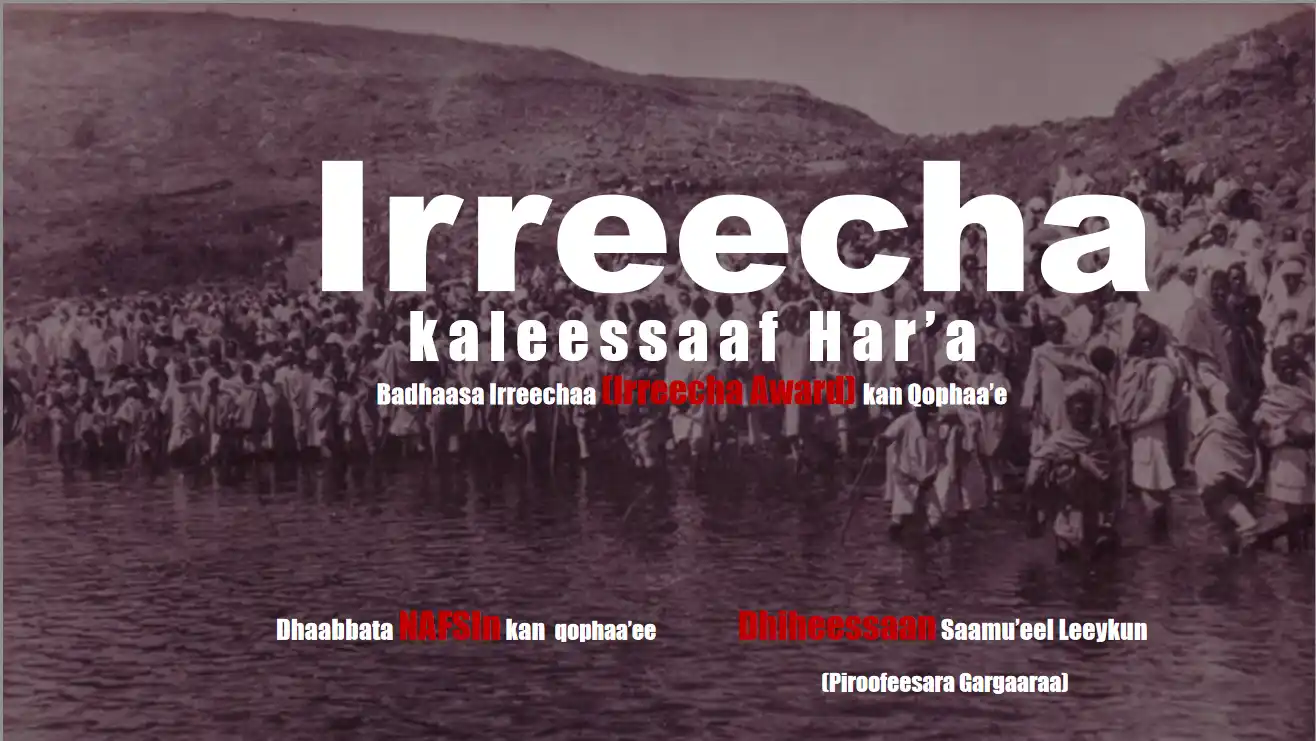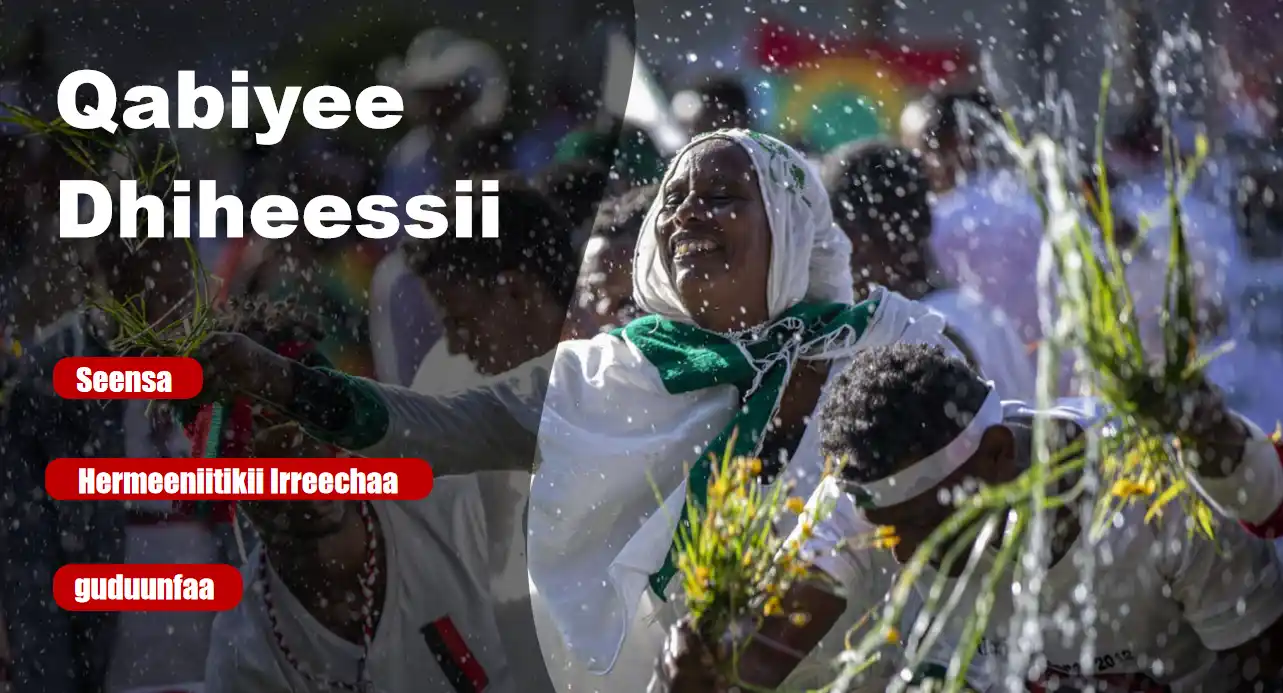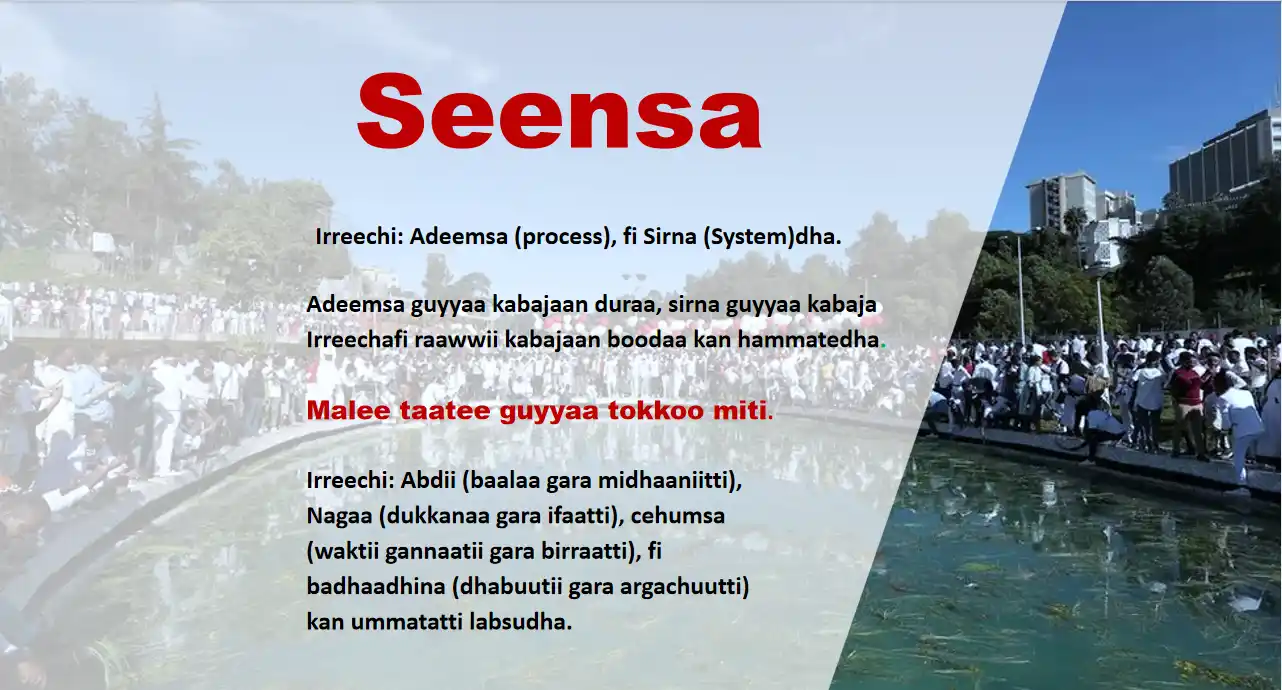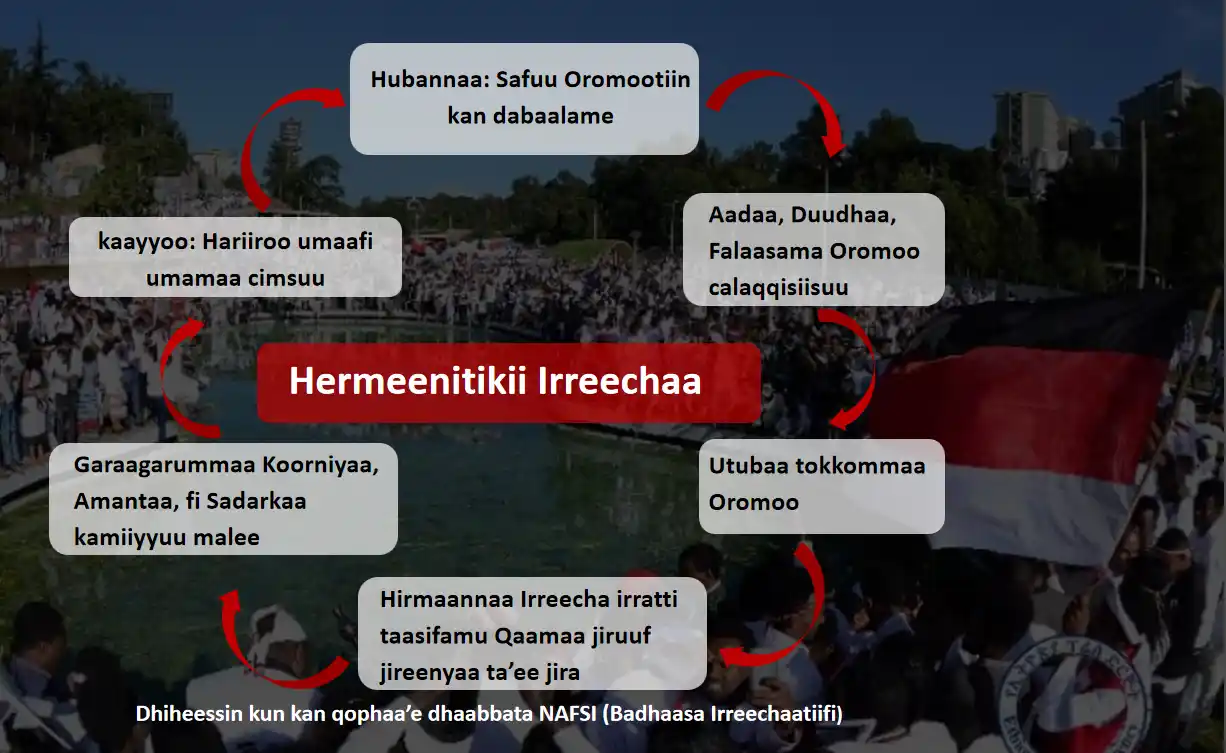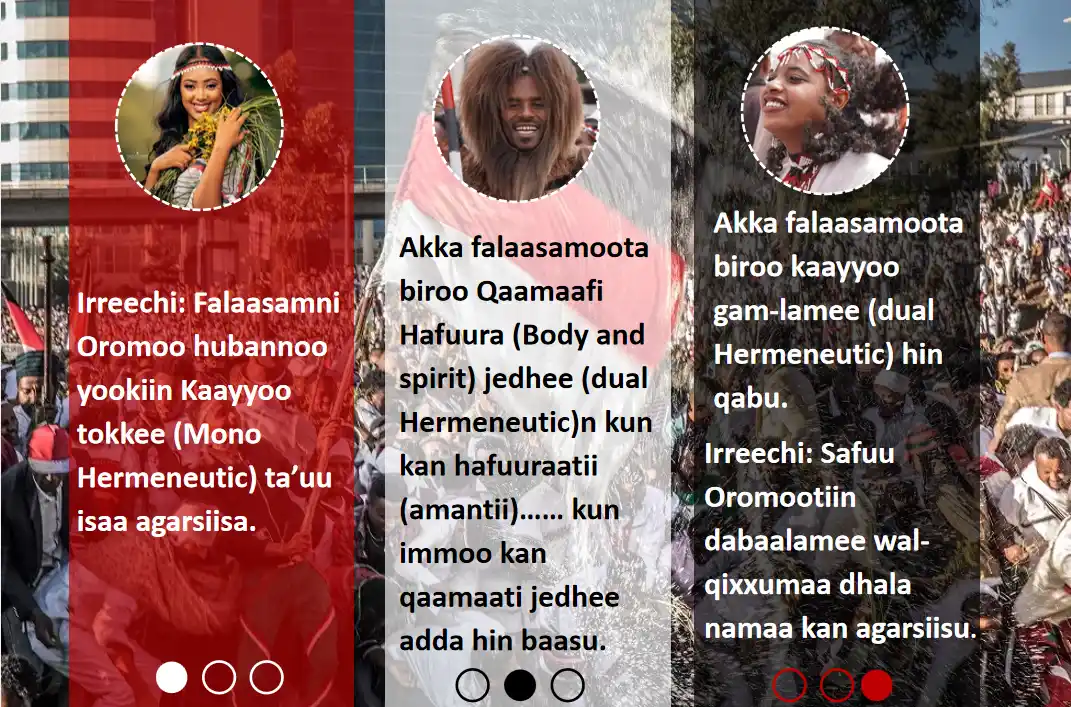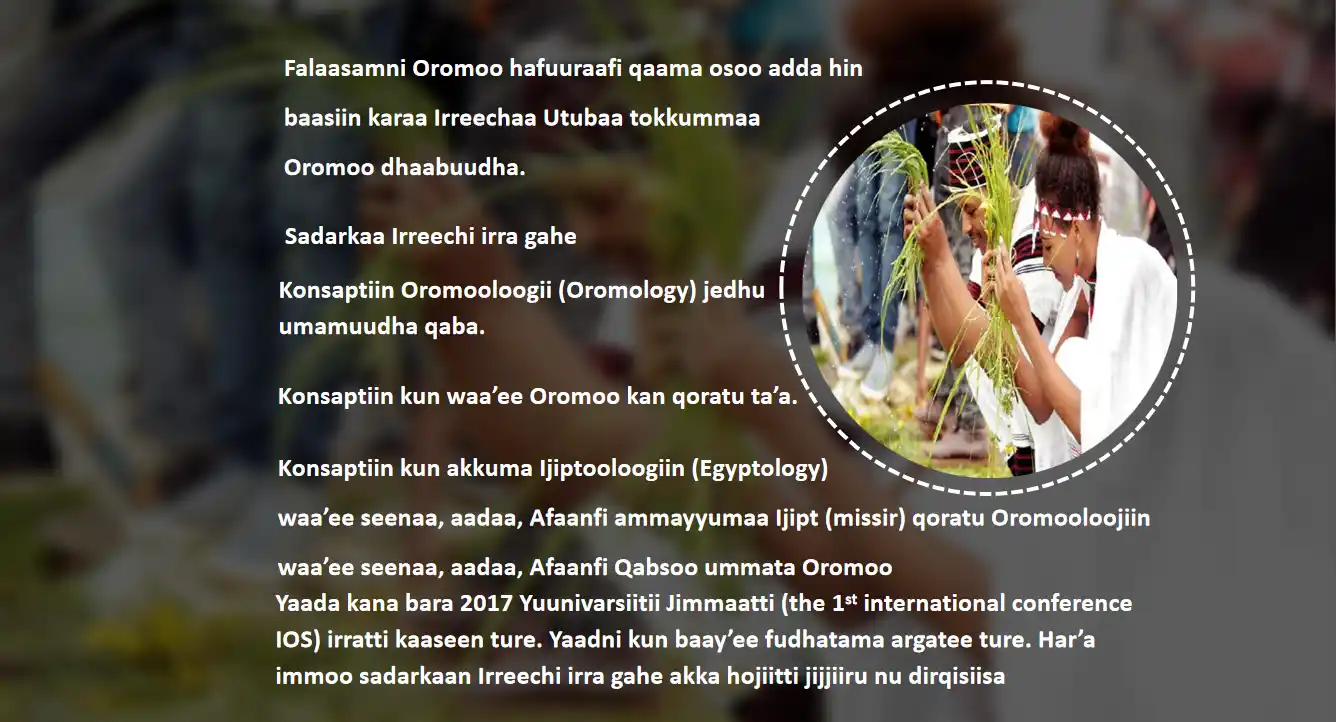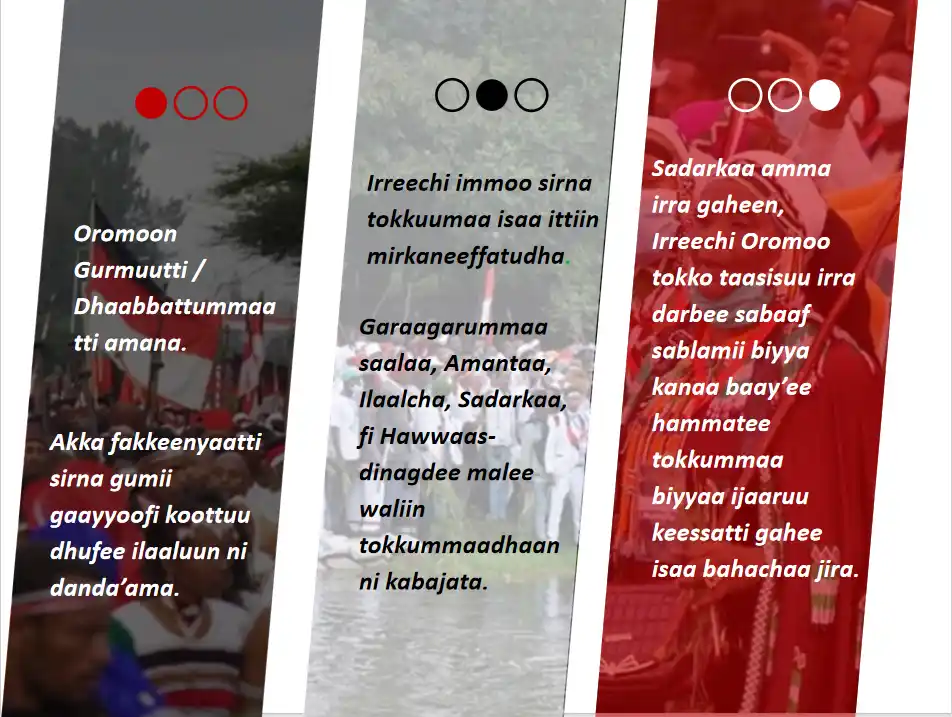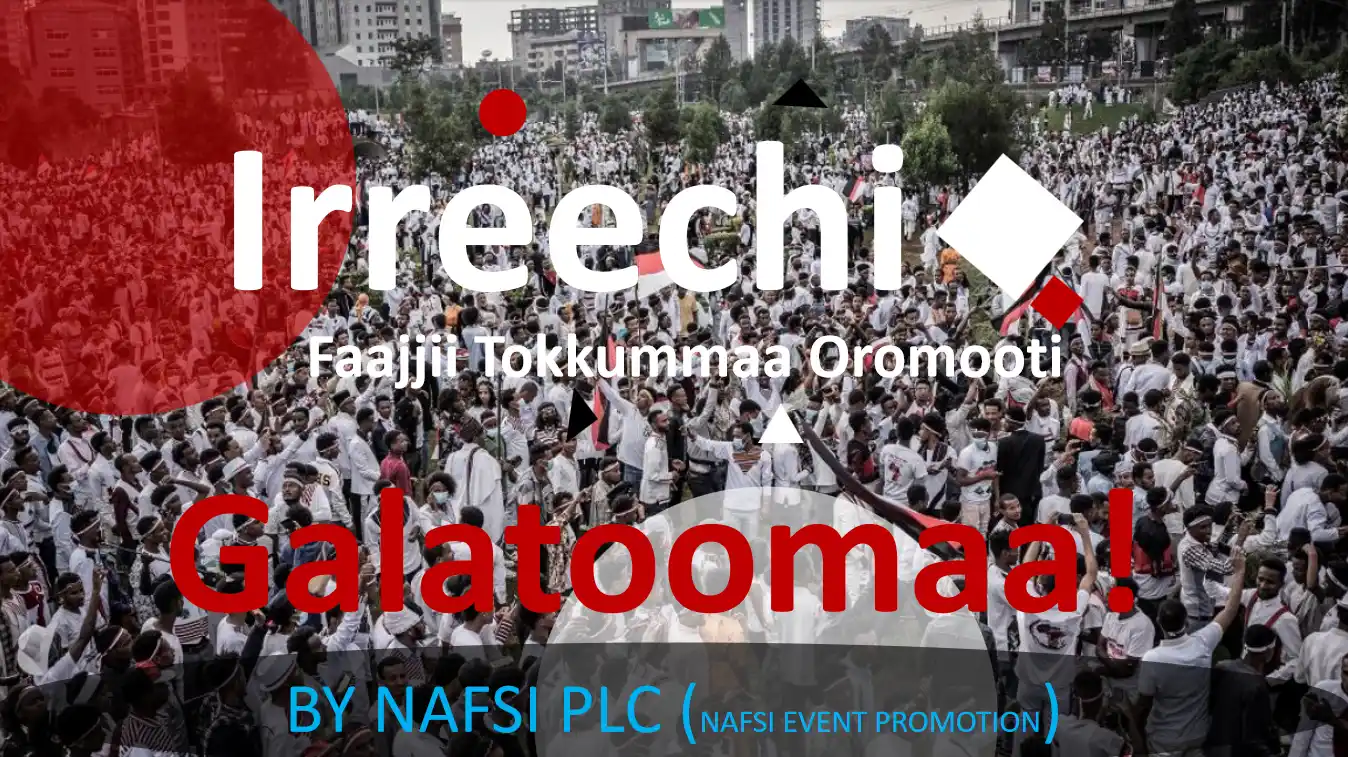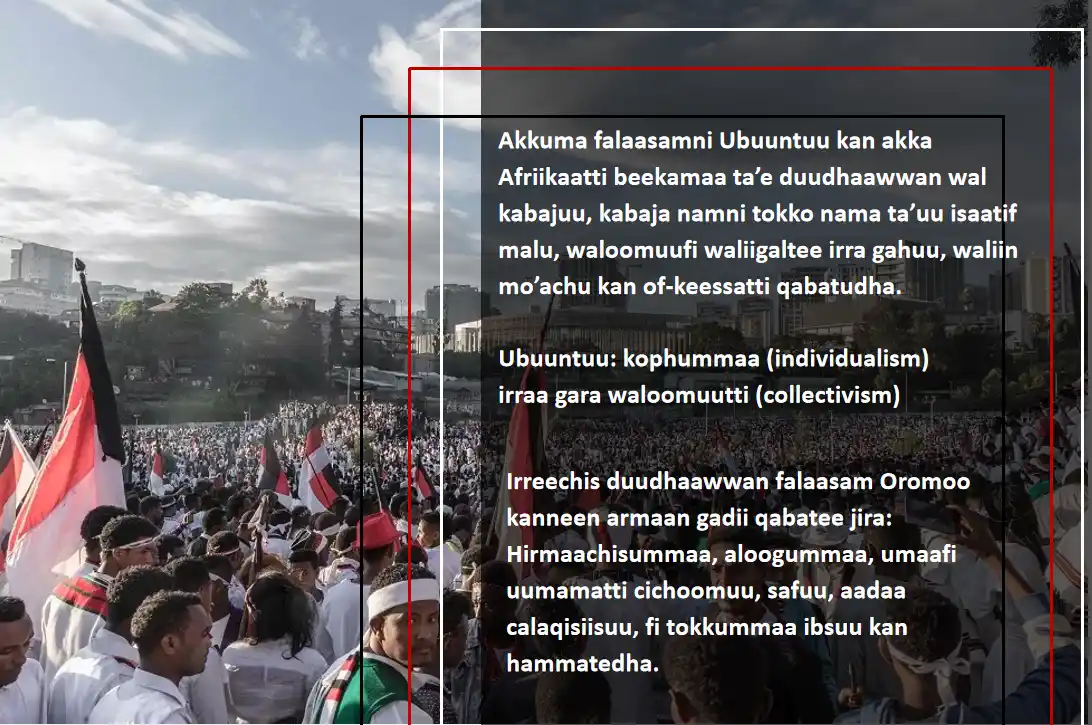About Irrecha
The Oromo people in Ethiopia celebrate Irreecha every year in an extent not less than other big festivals of the country nationally. The celebration of Irreecha, which is concerned with fertility and the flourishing of life by Waaqa (God), a thanks-giving festive week, in October coincides with the end of the summer rainy dark cloudy season, where the rainy season leaves itself into a sunshine flowery one, especially in central and west and west-central highlands. This is the beginning of birra (autumn) season here are two types of Irreecha: Irreecha Malka (at river or waterbody) and Irreecha Tullu at mountains. Utterances as contents of the ceremony are such as the standing together of the people and all parts of the society, to be in unity against all adversaries, praying for peace and avoiding evils and causes of insecurity and disharmony among all the people and hoping the future; supporting each other for recovery during all bad situations. Among other values revered with this biggest festival is peace at the heart of the ritual celebration.
Peace, termed and addressed in Afan Oromo as “nagaa” or “nageenya” (peacefulness) and “walooma” (harmony and unison) within the background of Irreecha in Gada system, plays a prominent role in the making of livelihoods of the people and their harmonious sustenance in their socio-cultural and natural environments. Oftentimes, “nagaa” and “nageenya” are among the expressions most commonly occurring in the daily life and business activities among individuals, indigenous institutions (secular and religious) up to socio-economic and political discourses at governmental levels in the media. These discourses of peace are deep-rooted and engraved in the Oromo culture and the celebrations of renowned ritual and holly gatherings of the mass of people in millions at special occasions, like the Irreecha celebrations Fostering peacemaking, peace education (preaching), developing the behavior of eliminating conflicts within and among our society and sustaining all the peacebuilding ways can serve our world of conflicts where they have brought about devastations as the issue of sustainable peace has been challenged in the country; at every corner of the nation there is a big cry for call of for peace now a days. We have to underscore that peace is unanimously uncompromisable. “Peace has no alternatives.”
The effort to be geared towards restoring peace is inevitable from socio-cultural viewpoints. Promoting values of peace and its proponents technically should be among the most urgent undertakings all the stakeholders of peace.
In accordance with this objective, from the viewpoint of Irreecha is that there is an endowed (inalienable) peace with nature, and people, and peace with Waaqa–the almighty creator that people should respect; tranquility to every part of nature, and deliverance from infirmities where humans as societies play a great role are viewed revering Waaqa (God) and his values through thanks-giving. Hence, it is obviously commendable that among the Oromo people.
Therefore, Irreecha has an important role in reconciliation, unifying the Oromo people and promoting their culture, custom and beliefs system. In addition Irreecha plays a fundamental role in social inclusion and social exclusion based on their deeds and behaviors as per the recommendation by the stipulated, amended or passed laws. It means that people should abide by the norms set. So there is distancing between those who do good things that will be appreciated and get acceptance in the society, and those who have to be discouraged of their bad deeds to be blamed and cursed so that other parts of the society will learn from these actions.
